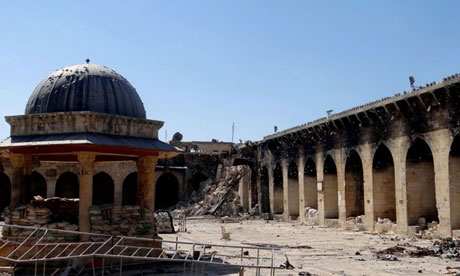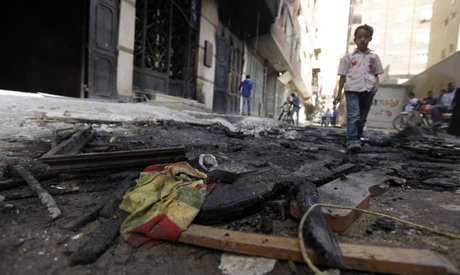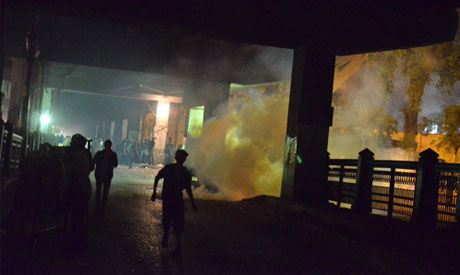The video shows some of the destruction that is going on.
DAHSHOUR, Egypt (AP) — Egyptian youths protested Monday at a key historic site, demanding that authorities put a stop to looting and construction that threatens one of the nation's oldest pyramids and burial grounds.
Illegal construction
of a new cemetery has been going on for months in part of a
4,500-year-old pharaonic necropolis. The expansion has encroached on the
largely unexplored complex of Dahshour, where Pharaoh Sneferu
experimented with the first smooth-sided pyramids that his son Khufu,
also known as Cheops, employed at the more famous Giza Plateau nearby,
when he built the Great Pyramid.
Authorities issued an order in January to remove the construction equipment, instructing the Interior Ministry's police to implement it, but no action has been taken.
 |
| Bent pyramid of Seneferu |
Also, a security vacuum that followed Egypt's 2011 popular uprising has encouraged looters to step up their illegal digs, clashing with guards at the site.
On Monday, dozens of young protesters at the site about 40 kilometers (25 miles) south of Cairo held up a sign that read: "God does not bless a nation that gives up its heritage."
The area, designated by UNESCO as a World Heritage site, also includes the adjacent Valley Temple and the 3,800-year-old Black Pyramid of Amenemhat III.
Nearby is Sneferu's Bent Pyramid, some 700 years older, with its distinctive bent sides believed to have been caused when the builders had to correct the angle halfway through construction. Farther away is the Red Pyramid, where Sneferu's builders got the angles right, producing the first smooth-sided pyramid, evolving from the stepped structures built by earlier dynasties.

.jpg)








 People walk in front of a burnt house after clashes in Al-Khosous in Qalyubiya governorate (Reuters).
People walk in front of a burnt house after clashes in Al-Khosous in Qalyubiya governorate (Reuters).

